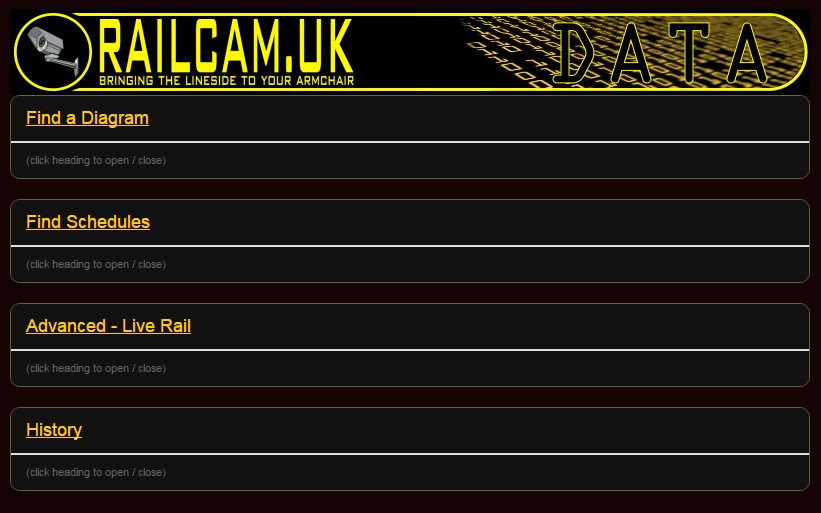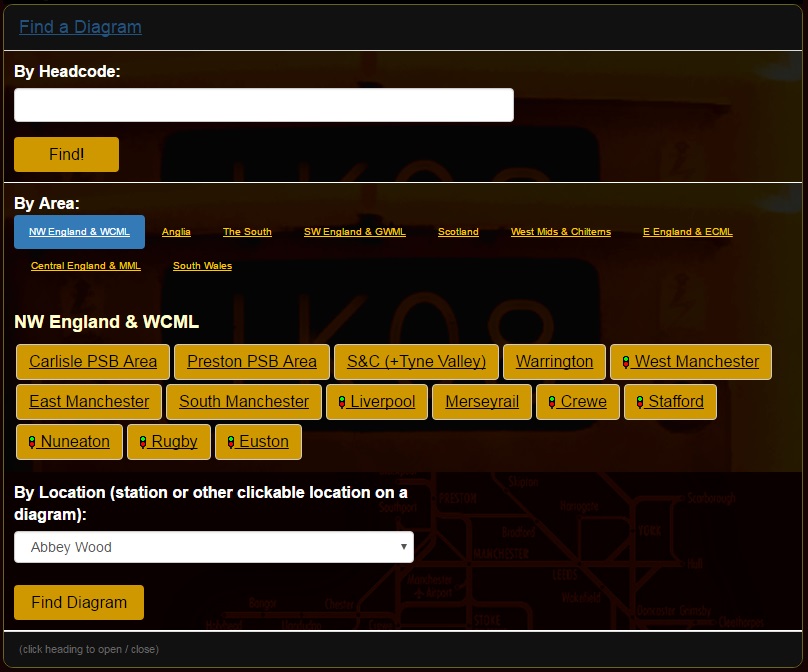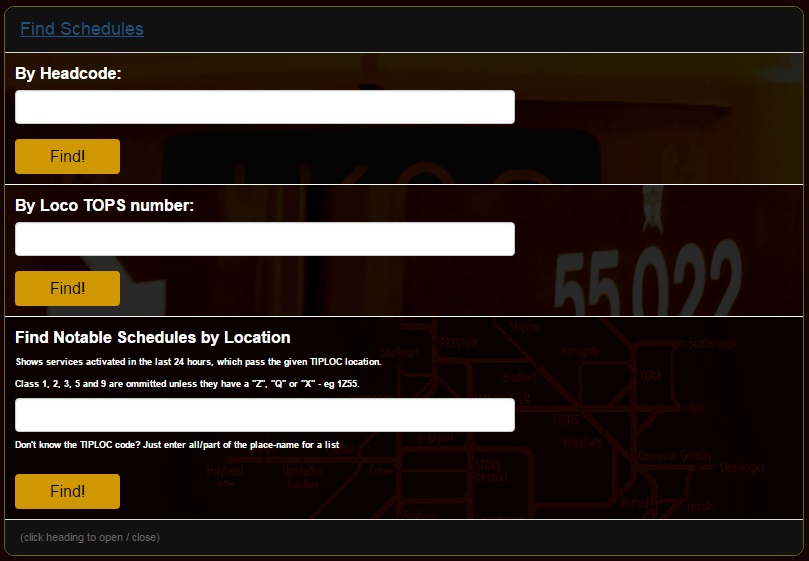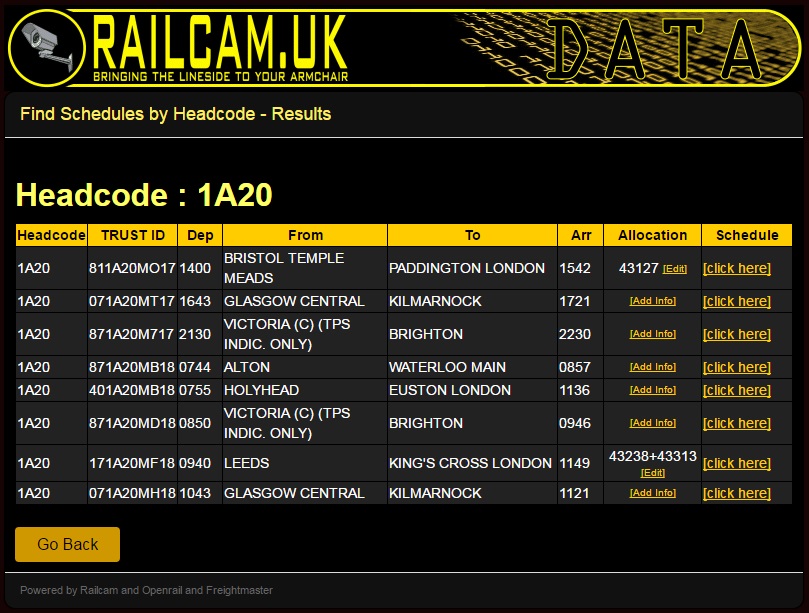Difference between revisions of "Railcam DATA Searches and features"
| Line 27: | Line 27: | ||
This shows an example where there are 8 trains which all used 1A20. The details cover a 24 hour period ranging from about 2 hours in the future to about 22 hours in the past. The last two digits of the TRUST ID are the date so care should be taken if entering information via this screen that the correct days train is chosen. Any allocation information already entered is shown. | This shows an example where there are 8 trains which all used 1A20. The details cover a 24 hour period ranging from about 2 hours in the future to about 22 hours in the past. The last two digits of the TRUST ID are the date so care should be taken if entering information via this screen that the correct days train is chosen. Any allocation information already entered is shown. | ||
| − | |||
If these features don't cover your needs, then you can delve into the data in more detail with LiveRail - Railcam's extended version of Phil Wieland's open-source Open Rail system. | If these features don't cover your needs, then you can delve into the data in more detail with LiveRail - Railcam's extended version of Phil Wieland's open-source Open Rail system. | ||
| + | [[Railcam LiveRail]] | ||
Revision as of 12:36, 20 February 2017
Railcam DATA Searches and Features
Access to many features can be made by using the Railcam Data button on the main menu bar
![]() This will bring up a page with various options for further information.
This will bring up a page with various options for further information.
In order of the list shown clicking on Find a Diagram brings up
By Headcode : Entering a headcode will display the diagram(s) that that headcode currently appears on and the appropriate diagram can then be selected. By Area : Selecting the appropriate buttons, first by general Area, then by specific area will bring up the required diagram. By Location. : This is an alphabetic listing of stations and a few other locations and clicking the appropriate name will take you to the diagram that location is shown on. Entering the first letter of the name will jump to that part of the listing.
Find Schedules
Again by entering the detail required in a field this will bring up the required information but of course the Loco number details will only be returned if the information has already been entered. It should be noted that headcodes are often duplicated across the country and even within an area at different times of the day
This shows an example where there are 8 trains which all used 1A20. The details cover a 24 hour period ranging from about 2 hours in the future to about 22 hours in the past. The last two digits of the TRUST ID are the date so care should be taken if entering information via this screen that the correct days train is chosen. Any allocation information already entered is shown.
If these features don't cover your needs, then you can delve into the data in more detail with LiveRail - Railcam's extended version of Phil Wieland's open-source Open Rail system.
Railcam LiveRail



